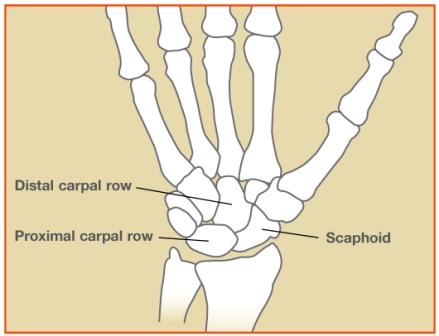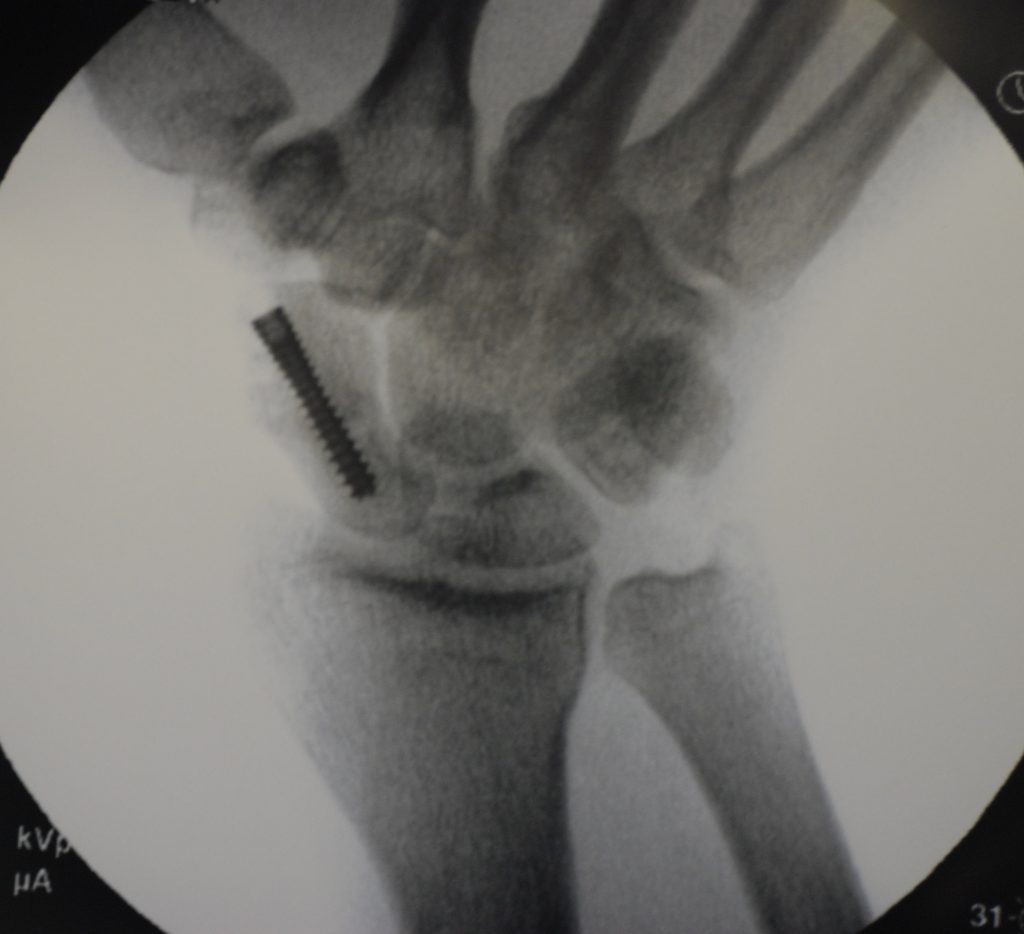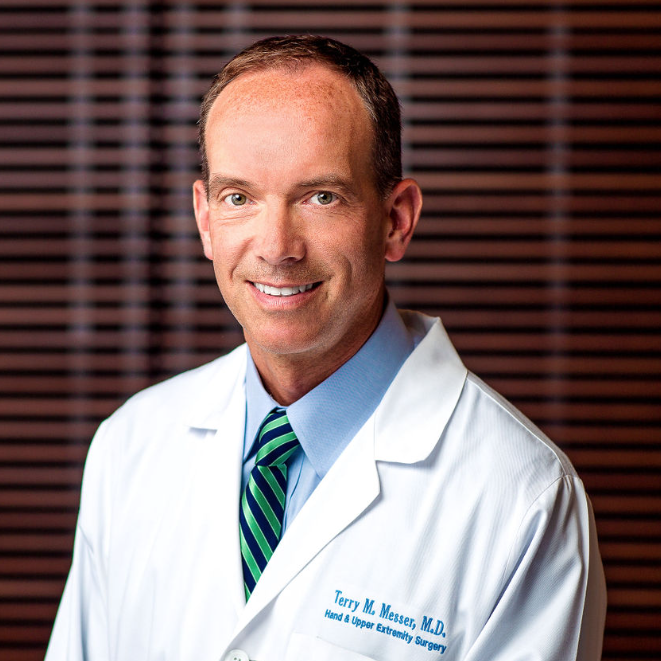The scaphoid, one of eight small bones in the wrist, is most commonly injured due to a fall on an outstretched wrist. It occurs most frequently in young men in their teens to 30’s. A patient with a scaphoid fracture (broken scaphoid bone) will have pain on the radial (thumb) side of their wrist. They will often have pain with wrist range of motion and may also have decreased movement of the wrist. Occasionally the injury is not obvious, and patients may think the injury “is only a wrist sprain.”
If a scaphoid fracture is suspected, X-rays should be obtained. However, X-rays will sometimes fail to reveal the crack in the bone if it is small, and thus additional tests such as MRI or CT scans may be ordered.

Scaphoid Fracture Treatment
If you have a scaphoid fracture, treatment is usually a cast or surgery. Scaphoid fractures heal slowly due to their limited blood flow. It may take several weeks or months in a cast before the fracture heals, depending on the type of fracture. Surgery is recommended for certain types of scaphoid fractures and in some patient groups. In several studies, the healing rates are better and faster with surgery versus cast treatment. Surgery can often be done through a percutaneous or minimally invasive approach, but does have some possible complications and surgical risks.
When a scaphoid fracture is not treated, the bone may not heal, and patients often experience worsening wrist pain, decreased range of motion, and stiffness. In time, these patients may develop wrist arthritis and may require surgical treatment in the future.

Raleigh Hand to Shoulder Center doctors are all board-certified by the ABOS and are members of the ASSH. Raleigh Hand to Shoulder center doctors treat patients from Raleigh, Durham, Chapel Hill, Cary, Morrisville, Apex, Knightdale, and Wake Forest, NC.

Dr. Terry Messer is a native of Reading, PA. He received his doctorate in medicine from Northwestern University Feinberg School of Medicine in 1995. This was followed by an internship and residency in Orthopaedic Surgery at Northwestern University Feinberg School of Medicine in Chicago . Dr. Messer completed his fellowship at the Christine M. Kleinert Institute for Hand and Microsurgery in Louisville, KY. Upon completion of his hand fellowship, Dr. Messer joined the Department of Orthopedic Surgery at University of North Carolina at Chapel Hill School of Medicine in 2001 as a hand and upper extremity specialist. He also practiced at Wake Orthopedics until 2006.


